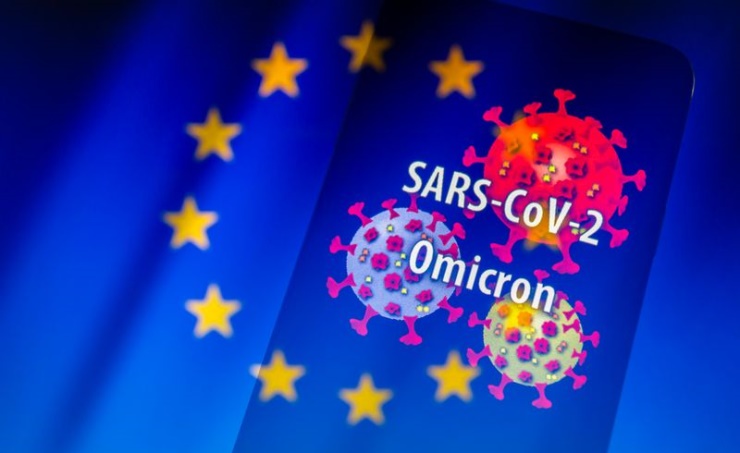Johannesburg : The new Omicron coronavirus variant is driving up infection figures in South Africa and is now increasingly spreading to older people, Health Minister Joe Phaahla said on Friday.
In the country’s worst-hit region – Gauteng province, which includes Johannesburg and Pretoria – the number of cases rose by 400 per cent week-on-week, Phaahla announced. Tests showed that the Omicron variant was behind about 70 per cent of the cases.
However, the figures appear to confirm initial observations of relatively mild symptoms and shorter hospital stays, according to scientist Glenda Gray and her colleague Michelle Groome from the National Institute for Communicable Diseases.
Research by South African professor Alex Sigal also showed that while Omicron reduces vaccine protection, it still offers up to 70-per-cent protection, depending on the number of antibodies developed.
He said that he saw no reason to believe that vaccination does not protect against severe Omicron infection, reports international.
Sigal and his team from the African Health Research Institute are believed to be the world’s first scientists to artificially grow the virus. The research focused on antibody protection.
“This virus is using the same receptor as the other variants; it changed a lot on its genome, but is has not changed essentially in the way it behaves…. It doesn’t go down to levels that are not effective,” he said.
Hospital managers have also confirmed these findings based on their observations but also pointed out that it was still too early to draw scientifically sound conclusions.
: The new Omicron coronavirus variant is driving up infection figures in South Africa and is now increasingly spreading to older people, Health Minister Joe Phaahla said on Friday.
In the country’s worst-hit region – Gauteng province, which includes Johannesburg and Pretoria – the number of cases rose by 400 per cent week-on-week, Phaahla announced. Tests showed that the Omicron variant was behind about 70 per cent of the cases.
However, the figures appear to confirm initial observations of relatively mild symptoms and shorter hospital stays, according to scientist Glenda Gray and her colleague Michelle Groome from the National Institute for Communicable Diseases.
Research by South African professor Alex Sigal also showed that while Omicron reduces vaccine protection, it still offers up to 70-per-cent protection, depending on the number of antibodies developed.
He said that he saw no reason to believe that vaccination does not protect against severe Omicron infection, reports international.
Sigal and his team from the African Health Research Institute are believed to be the world’s first scientists to artificially grow the virus. The research focused on antibody protection.
“This virus is using the same receptor as the other variants; it changed a lot on its genome, but is has not changed essentially in the way it behaves…. It doesn’t go down to levels that are not effective,” he said.
Hospital managers have also confirmed these findings based on their observations but also pointed out that it was still too early to draw scientifically sound conclusions.


